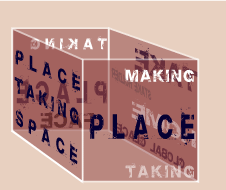Yagmur Y., who has a resolute mean and likes to criticize the social establishment, emphasizes that reunification also changed Turks’ perspectives as outsiders:
“Suddenly, one started to speak more Turkish or listen to more Turkish music or hang out with more Turks. Once people shove your foreignness in your face, it’s something you start to think about. I started when I was 13 or 14. And I preferred it, because I saw elements there I didn’t see with the Germans, and perhaps I would have never experienced it if someone hadn’t said to me, “you’re a foreigner and there’ll be a naturalization law, you’re a guest worker.” Without this debate I might not have thought about it in this way.
Many of those interviewed spoke of being confronted with their foreignness. The perceived difference between the second- and third-generation Turks and the German population created an emotional dilemma for many. They became Turks socially and politically. Ufuk K. always identified as a Germany before the reunification. He explains how this feeling changed:
“If someone were to ask me whether I’m a German or a Turk, I’d tell them I was a Turk. Though Turkishness is perhaps only 20% of me, that 20% represents the minority and I feel more attracted to minorities than to others” .
Nevim ?il, “The Other and the Foreign Outsider: Second and Third Generation Turks in Reunified Germany,” Insider-Outsider. Bilder, ethnisierte R?ume und Partizipation im Migrationsprozess, ed. Ifade (Bielefeld: transcript-Verlag, 2005).

